Welcome to All Football Scouting Report, in here we will take you a closer look at world's promising stars. Benjamin Pavard, France's World Champion who scored a stunning goal against Argentina that won Goal of the Tournament, now could have a brightening future at Bayern. How good is he? Let's have a look...
(Watch: What makes Benjamin Pavard so good?)
We are now seeing many of France’s defensive exports leading defenses from all over Europe to success. The latest addition to France’s impressive pipeline of central defenders is none other than Benjamin Pavard.
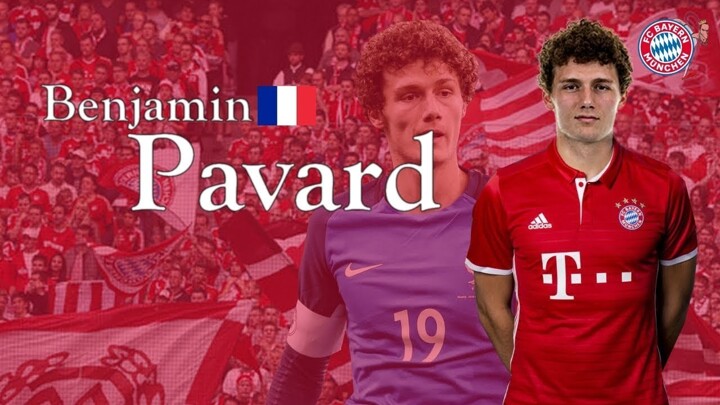
After a breakout Bundesliga campaign and a stellar World Cup, the 22-year-old defender has made himself a hot commodity in the footballing world before Bayern announce the signing.
After a delightful inaugural Bundesliga season and an impressive debut World Cup, which concluded with him becoming a World Champion and scoring a stunning goal against Argentina that won Goal of the Tournament, Benjamin Pavard has been able to establish himself as a rising star. At just 22-years old, he is already a superb defender, but his age suggests he still has room to improve and develop.
Who is Benjamin Pavard?
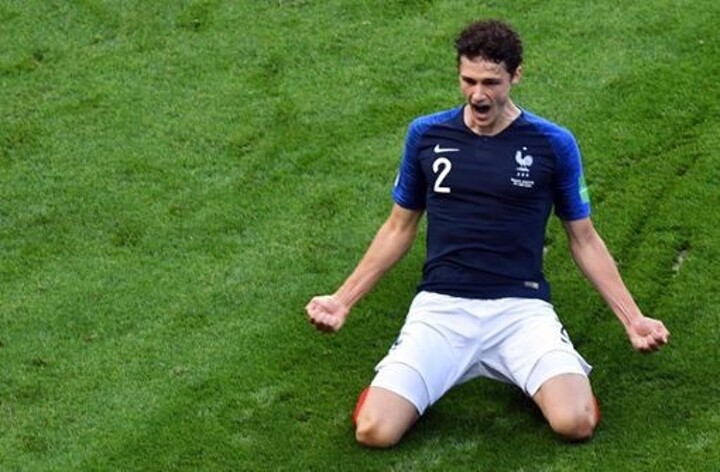
Benjamin Pavard was born in Maubeuge, a small commune in the North of France, on March 28th, 1996. Pavard is a product of Lille’s youth academy and played for them until the summer of 2016. The move came after he learned he was no longer in the plans of then-manager Frederic Antonetti.
The youngster then joined Stuttgart for a fee of €5 million. At Stuttgart, he was cautiously brought into the starting XI during the early stages of the 16/17 season but eventually became a regular starter and was able to help them secure the Bundesliga 2 title.
What is his Style of Play?
Pavard is a modern defender with phenomenal tactical intelligence and knowledge of the game. The 22-year-old defender excels at reading the game and has an exceptional ability to anticipate passes. His ability to combine this with an incredible positional sense, well-timed tackling, and an excellent ability to close down opposing players in possession of the ball, puts him in the upper echelon of young defenders.
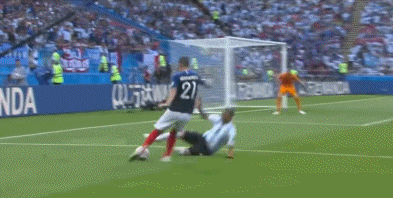
(Pavard's ridiculous strike named Goal of the World Cup)
A talented distributor, Pavard is collected and confident in possession. He is a stabilizing force at the back, playing short passes to nearby teammates, and when given time, he can advance the ball through one or two lines of defense with a single pass, a gift that even some premier defenders lack.
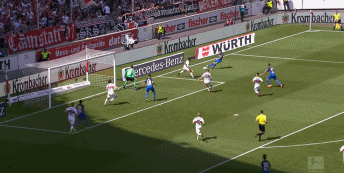
A technically gifted and tactically versatile central defender, he is also capable of playing as a defensive midfielder and a right-back. This flexibility led his former manager, Hannes Wolf, to describe him as the team’s Swiss Army knife.
What are his Strengths?
One of the greatest appeals of Benjamin Pavard is his defensive intelligence. The 22-year-old defender reads the game impeccably, which enables him to excel in most defensive sequences he faces. He’s able to anticipate the movements of opposing forwards, shift his body and position in relation to the ball, and generally always seems to be a step ahead of his opponents.
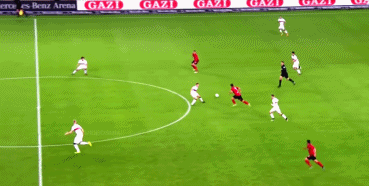
While Pavard profiles best as a centre-back, he has spent a considerable amount of time at right-back both at club level and on the international stage. This positional flexibility makes him particularly excellent at defending when isolated against attackers.
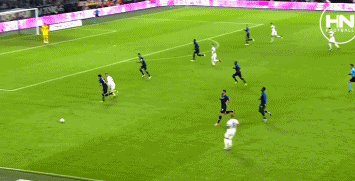
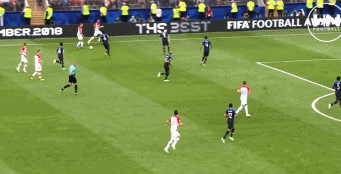
He not only has the positional sense to use his body shape and position to force the attacker into complete isolation but also knows how to use his cover shadow to make forward passes impossible.
If the attacker attempts to cut inside, Pavard’s intelligent positioning, balance, and use of angles make it very difficult for attackers to get past him. Even in transition, he is nimble and zippy enough to hold his own against pacy attackers.
With the evolution of the modern game, the role of central defenders has changed radically. Gone are the days where defenders’ only job was to stop progression and keep the ball out of the goal.
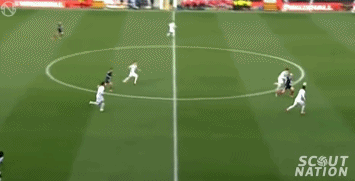
Now the pitch has become so condensed that defenders are, at times, the only players that can bring the ball into the midfield and help progress play for their side. Because of this, defenders have had to develop their ball-playing skills and their ability to progress the ball into the midfield.
Pavard’s able to take care of business in the penalty area as well. He’s a proper sweeper and is always quick to clear dangerous passes. Along with this, he is unusually tenacious in his set-piece defense. He can be seen tugging on kits and doing just about anything possible to make opposing players uncomfortable during corners.
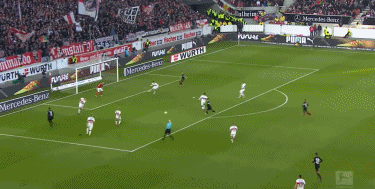
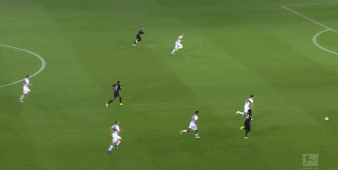
With Stuttgart’s emphasis on building from the back, Pavard’s passing is crucial to their play. Pavard is patient in his build-up and looks to shift the ball left-to-right in effort to stretch play and create openings for his midfield and wide attackers. Additionally, the 22-year old defender is capable of breaking one or two lines of defense with forward passes.
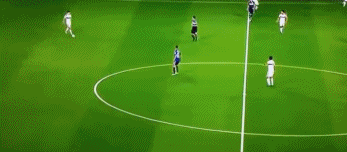
While this is by no means something that he does on every possession, he’s able to keep passive blocks honest with these disruptive passes. The Frenchman has also shown some ability to step into the midfield while in possession of the ball. Once in these positions, Pavard is very difficult to dispossess and can cause real problems for opposition defenses.
What are his Weaknesses?
Though he is more than competent passer and ball-carrier, Pavard is often too timid in possession. At times, there are pockets of space that he easily could drive into but he decides not to, often opting for a safe pass to his full-back or nearby defensive midfielder. Similarly, Benjamin is a more than capable line breaking passer, but it is not unusual to see him go whole matches without attempting a single one. For him to progress as a modern ball-playing centre-back, he has to be willing to take risks.
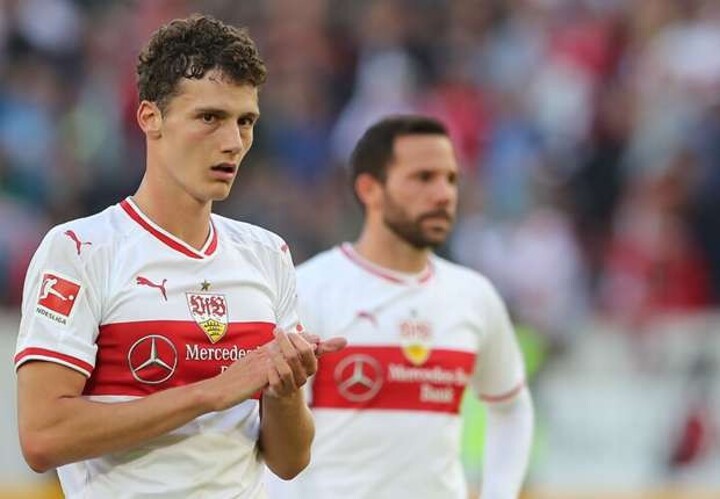
In addition to his apprehension in possession, is the fact that he is quite light for a defender. Weighing 76.2 kg, he has struggled against some of the more physical strikers the Bundesliga has to offer. Indeed, strikers such as Robert Lewandowski have been able to exploit his lack of physicality and have dominated him in physical duels on multiple occasions.
Comparatively, he’s unable to muscle weaker attackers off the ball in the way physically dominant defenders can. If Pavard wants to become an elite defender whose abilities translate to even the toughest of leagues, he’s going to have to strengthen himself physically.
What's next?
Pavard’s arrival at the Allianz Arena in summer 2019 partners arguably the league’s two best right-backs in the same squad. Both he and Kimmich have established themselves as Bundesliga heavyweights at a young age, with the Frenchman backing up a breakout first season in the German top flight in 2017/18 by becoming an integral member of Didier Deschamps’ 2018 FIFA World Cup winners in Russia.
Kimmich often appears at the base of Bayern’s midfield in Kovac’s 4-2-3-1 or further forward as a central midfielder in a 4-1-4-1.

In fact, seven of Kimmich’s 17 Bundesliga appearances so far this campaign have seen him take up a role in Bayern’s midfield.
It should provide Pavard with hope that there will be chances to take while he finds his feet, with further evidence coming in the shape of Rafinha’s 15 games in all competitions this season despite Kimmich’s grasp on his favoured spot on the team sheet.
With the Brazilian expecting this to be his last in Bayern colours, Pavard's arrival provides the Munich club with ample cover in a number of positions. And at the age of 22, could do so for many years to come.
